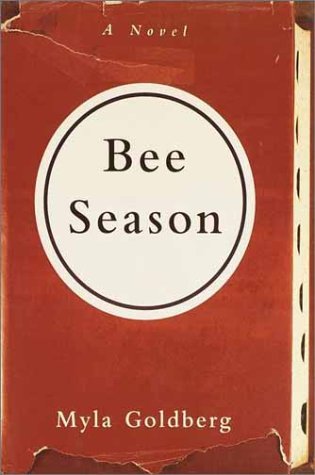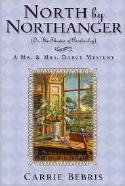Eliza Neumann is an average student, even though she has above-average parents: Saul, the synagogue’s affable cantor leader but who would rather spend his time studying Jewish mystics; and Miriam, an obsessive-compulsive lawyer. Her older brother, Aaron, is no slouch, either; aside from being bullied early on at school, he’s managed to slide through life with ease.
Eliza has been flying under everyone’s radar for so long — all the parental hopes are laid on Aaron, after all — that no one expects Eliza to begin spelling words perfectly, seemingly out of the blue. Her consecutive wins at the bees — first school, then district, then state — throw her family’s already precarious balance completely off. It’s fascinating to read about Eliza’s experiences with the words: how they magically appear in her mind, perfectly arranging themselves, and how, confident in her connection with them, she finds success — and, yes, acceptance — in the letter.
However, the plot from this point (roughly halfway through) becomes complex, dense, and utterly unenjoyable. Saul and Miriam’s marriage, which was already a bit tense, goes into a headlong downward spiral. This is partially due to the fact that Saul decides to throw himself into helping Eliza study, mostly because he believes she can become the next Jewish mystic. In doing so, he alienates his son and abandons his wife. All his hopes, aspirations, and dreams become fixated on an 11-year-old girl who just wants to spell. In short, he is concerned with Eliza’s success, rather than with appreciating the process or the time spent with her.
Miriam is no victim in this, either. She gives in more and more to a secret obsession, one that not only pushes her family away but eventually utterly consumes her. It’s a weird, compulsive, uncomfortable obsession, one that is both painful to read about and more information than a reader could ever want to know about a character.
And Aaron, unable to cope with Eliza’s genius, decides that what he really needs is to connect with God; he secretly goes about checking out different religions, finding solace, and possibly God, with the Hari Krishnas. He’s running away from his family, avoiding the fact that his little sister is more successful (at least in the eyes of their father) than he is. But what is truly pathetic (and sad) is his showdown with Saul over his decision to leave Judaism. At the very least, Saul’s reaction is embarrassing; at the most, infuriatingly controlling.
Perhaps this is a cautionary tale about the obsessions we have in life: from wanting to see our children (or ourselves) succeed to wanting to make sure everything is in its place. If so, it would have helped if the book were something more than a chronicle of a family gone completely, horribly, and irreparably wrong.
Rated: Moderate, for several uses of strong language; masturbation; and some married, fairly detailed sexual scenes. It could be considered high by some: this reviewer felt particularly uncomfortable with how the scenes were depicted.




